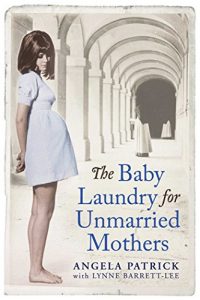In 1963, London was on the brink of becoming one of the world's most vibrant cities. Angela Patrick was 19 years old, enjoying her first job working in the City, when her life turned upside down. A brief fling with a charismatic charmer left her pregnant, unmarried and facing a stark future. Being under 21, she was still under the governance of her parents, strict Catholics who insisted she have the baby in secret and then put it up for adoption.
Shunned by her family and forced to leave her job, Angela was sent to an imposing-looking convent for unmarried mothers in north-east London. Run like a Victorian workhouse, conditions in the convent were decidedly Spartan. Vilified and degraded by the nuns for her 'wickedness', her only comfort came from the other pregnant girls, all knowing they too would have to give up their babies. After a terrifying labour with no pain relief, Angela gave birth to a beautiful son, Paul, with whom she fell instantly in love. At eight weeks he was taken from her and forcibly put up for adoption, leaving Angela bereft and heartbroken. Not a day went by without Angela thinking about him. Then, thirty years later, she received a letter. It was from Paul, and a reunion was arranged.
This vital slice of social history is a shocking reminder of how cultural mores have changed around the issue of single motherhood since the early 1960s. It is also an honest, heartfelt memoir that explores the closest of human bonds.
Shunned by her family and forced to leave her job, Angela was sent to an imposing-looking convent for unmarried mothers in north-east London. Run like a Victorian workhouse, conditions in the convent were decidedly Spartan. Vilified and degraded by the nuns for her 'wickedness', her only comfort came from the other pregnant girls, all knowing they too would have to give up their babies. After a terrifying labour with no pain relief, Angela gave birth to a beautiful son, Paul, with whom she fell instantly in love. At eight weeks he was taken from her and forcibly put up for adoption, leaving Angela bereft and heartbroken. Not a day went by without Angela thinking about him. Then, thirty years later, she received a letter. It was from Paul, and a reunion was arranged.
This vital slice of social history is a shocking reminder of how cultural mores have changed around the issue of single motherhood since the early 1960s. It is also an honest, heartfelt memoir that explores the closest of human bonds.






